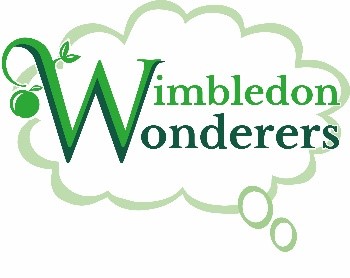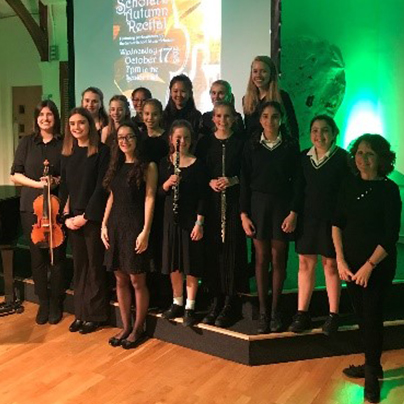Ms Mari Nicholas, Head of Academic Scholarship at WHS, looks at how WHS is scholarly and why we should be lifelong learners.
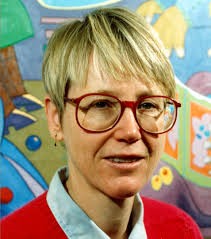
From Thales of Miletus, Zarathustra and Confucius to Nancy Cartwright, Kwame Anthony Appiah and Judith Butler, over the centuries, philosophers have debated and cogitated the big questions. According to the University of Oxford, the study of Philosophy develops analytical rigour and the ability to criticise and reason logically. These skills can be applied to questions ranging from how we acquire knowledge and form moral judgements to central questions in the philosophy of religion. (Ox.ac.uk, 2019)
An expert is a person who is knowledgeable about or skilful in a particular area. Being scholarly means having or showing knowledge, learning, or devotion to academic pursuits. One could argue, therefore, that one does not need to be a philosopher in order to be an expert or indeed scholarly. We can all develop knowledge, become skilful and devote ourselves to academic pursuits without having to give up the day job!
Work hard, pass exams and get a job?
There are myriad benefits of lifelong learning, not least the joy of discovering something new. Every day is a school day, perhaps more for teachers than most, as rarely a day goes by when one does not learn something new from the girls we are fortunate enough to educate.
Major advantages of continued learning include improving our mental and physical health: it fosters a sense of identity, an ability to cope and a sense of purpose. Studies have shown that learning leads to a greater sense of wellbeing and continued education in life contributes to a ‘cognitive footprint’, which may delay the onset of dementia. Physical health is also improved and longitudinal studies have shown a lower risk of coronary heart disease, higher probability of cervical screening and improved nutrition. In fact, learning as a whole has an impact on mortality, although one can attribute this evidence to both early as well as adult education.
Adult learning has a positive effect on your employability, raising aspirations, increasing earnings and improving job satisfaction. Adult learning fosters a capacity to be assertive and to collaborate with others in the workplace (Billett, 2014). It is beneficial for your employer too, increasing productivity, employee commitment and resulting in a slower turnover of staff.
Community learning and vocational training are associated with improved community engagement, local involvement and volunteering (Bosche and Brady, 2013; Feinstein et al., 2008). In particular, adult literacy and numeracy have a positive impact on communities, leading to greater tolerance of others and increased trust in people of different nationalities and religions. Finally, adults who participate in learning themselves are more likely to engage in their children’s education, improving outcomes. Where levels of inequality are high, this effect is particularly pronounced (OECD, 2016).
What does Scholarship look like at WHS?
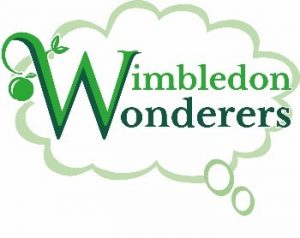 Alongside high-quality provision in lessons, the academic stretch programme challenges our learners throughout the school.
Alongside high-quality provision in lessons, the academic stretch programme challenges our learners throughout the school.
Girls in Years 7 and 8 attend Wonderers sessions where departments take their education beyond the curriculum and enjoy learning for its own sake. This academic year, a diverse range of subjects has been covered, from Classics “The link between myth, poetry and art”; Product Design “Principles behind designing and the utility of products” and Maths “The Maths behind knitting”.
Tea and T’inking is an informal discussion group where older students come together to hash out the big ideas. Topics covered so far this year include: politics “what we might consider as an ideal political system and the deficiencies in our system”; general knowledge “what do we mean by general knowledge, how is it useful and how might it be applied?”; modern linguistic and visual culture “Why are young people attracted to memes, what do they mean and what is their importance?”.
 Our robust Explore and Rosewell lecture series welcomes external speakers to challenge and provoke those girls in Years 9 to 13 to think more deeply both within and without their subject specialism. Parents, teachers and partner schools are welcome at these lectures. Our external speakers have included: Janet Henry, Chief Global Economist for HSBC, “Diverging fortunes”; “In conversation with” Gillian Clark, poet, playwright,
Our robust Explore and Rosewell lecture series welcomes external speakers to challenge and provoke those girls in Years 9 to 13 to think more deeply both within and without their subject specialism. Parents, teachers and partner schools are welcome at these lectures. Our external speakers have included: Janet Henry, Chief Global Economist for HSBC, “Diverging fortunes”; “In conversation with” Gillian Clark, poet, playwright,  editor, broadcaster; Prof Vicky Neale, Whitehead lecturer at the Mathematical Institute, “Closing the Gap, the quest to understand prime numbers”; Dr Guy Sutton, “Mind and brain in the 21st Century”.
editor, broadcaster; Prof Vicky Neale, Whitehead lecturer at the Mathematical Institute, “Closing the Gap, the quest to understand prime numbers”; Dr Guy Sutton, “Mind and brain in the 21st Century”.
An integral part of being a member of staff at WHS is continual study and the development of expertise in their field. Regular training from Trust or external providers to in-house Twilight sessions cover a range of topics from “How to become a Head of Department” to “Giving feedback on exams, tests and assessments” and allow staff to develop professionally, leading to benefits for themselves, the students and the school.
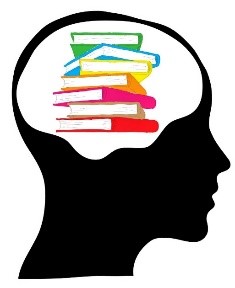
In addition, a group of staff from across the school make up a professional reading group, Brain Books. Every half term they discuss books in education that relate to their role within the school. These discussions inform their teaching, feed into departmental discussions and might eventually change the way we teach and learn at WHS. “Teaching Backwards” by Andy Griffith will be the next book to challenge preconceived notions of how excellent teaching and learning should look.
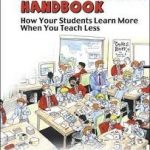 A discussion of “The Lazy Teacher’s Handbook” by Jim Smith drew the following comments:
A discussion of “The Lazy Teacher’s Handbook” by Jim Smith drew the following comments:
- His ideas cover a variety of pedagogical areas i.e. differentiation, lesson structure, plenaries, assessment, planning and pupil self-esteem.
- It is good to dip into and provides inspiration for different ways of doing something.
- One suggestion that I used today with some success is the think-pair-square-share idea for sharing ideas within the class. It doesn’t involve any pre-planning or moving of furniture and develops a range of skills for pupils.
- I read the book in its entirety and was entertained; I picked up lots of useful strategies. It lacked a rigorous evidence base and that was a sticking point for me as his own particular style dominated. Having said that, in the past couple of weeks I have utilised a number of things and have made note of more. I use continuums or opinion lines in lessons at all levels to help students develop arguments and have experimented with his suggestions of mixing up different points of view in different ways to get individuals differentiating their interpretations in a more nuanced way.
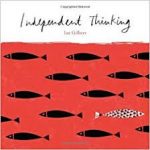 “Independent Thinking” by Ian Gilbert elicited the following:
“Independent Thinking” by Ian Gilbert elicited the following:
- Great for dipping into: the very structure of this book is creative and anti-linear, juxtaposing the author’s observations, ‘thunks’, witticisms, poems, stories, mini-essays, all to spark the reader’s own ‘out of the box’ thought processes.
- His short observations or perceived wisdoms could work really well to spark interdisciplinary debate and to develop flexible growth mind-sets although ‘profound’ wisdoms slip into cliché and become a bit grating.
- The book was unscientific, presenting anecdotal evidence as fact; not only that, but at times it seemed to be anti-science, evidenced in the chapter ‘How to know whether you’re a humanist or a scientist’ which lists a series of damning indictments on scientists.
- The emphasis on building a child’s positive self-image was great – nurturing a feeling of ‘can do’, even if not ‘yet’.
- It is not immediately relevant to my classroom teaching, but pastorally and more widely the ideas he had about creating opportunities to engage intellectually with the work of charities as well as support them with action were valuable.
- “30 things exams don’t test” works very well with my ‘being human in an AI age’ agenda. It had a “Good school checklist” – are we walking the walk with our vision and values? Perhaps leave the poetry to other people?
- It has made me reflect on my teaching and question, ‘How am I preparing today’s children for life in tomorrow’s world?’ Are my actions helping the girls in my class or school to in the future, have a positive effect on the world?
- I would like to think that a copy of this book was given to all those who work at the Department of Education!
In summary, is it the end for experts? No. Lifelong learning has a huge impact on our health, wealth and happiness. I believe we should be scholarly and become experts despite what others may think.
Bibliography
Billett, S., 2014. Learning in the circumstances of practice. International Journal of Lifelong Education, 33(5), pp. 674-693.
Bosche, B. and Brady, B., 2013. Benefits des community learning: Ergebnisse aus Irland, in Benefits of lifelong learning. DIE Journal for Adult Education, 1, pp. 30-34.
Feinstein, L., Budge, D., Vorhaus, J. and Duckworth, K., 2008. The social and personal benefits of learning: A summary of key research findings, London: Institute of Education, University of London.
OECD, 2016. The productivity-inclusiveness nexus. Available at: http://www.oecd.org/globalforum-productivity/library/The-Productivity-Inclusiveness-Nexus-Preliminary.pdf
Ox.ac.uk. (2019). Philosophy and Theology | University of Oxford. [online] Available at: https://www.ox.ac.uk/admissions/undergraduate/courses-listing/philosophy-and-theology?wssl=1 [Accessed 13 Mar. 2019].

